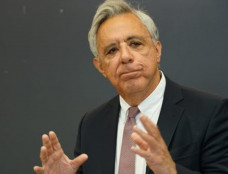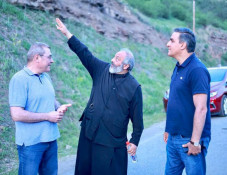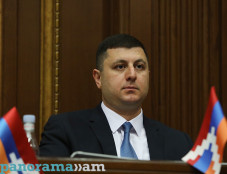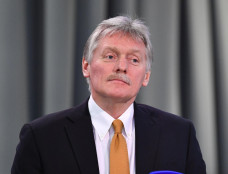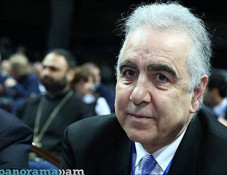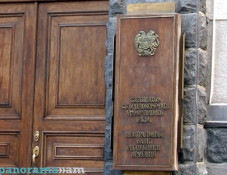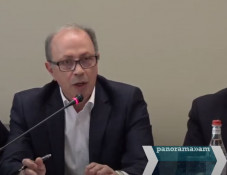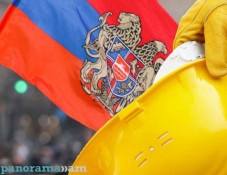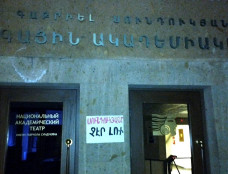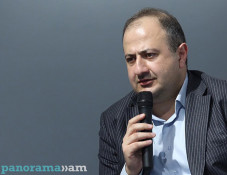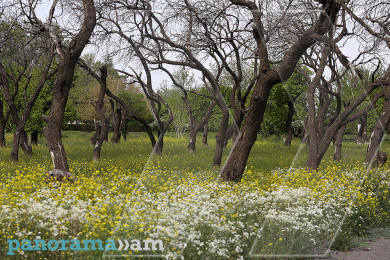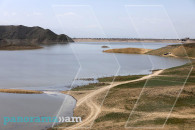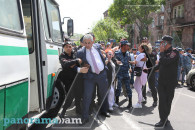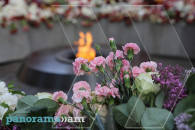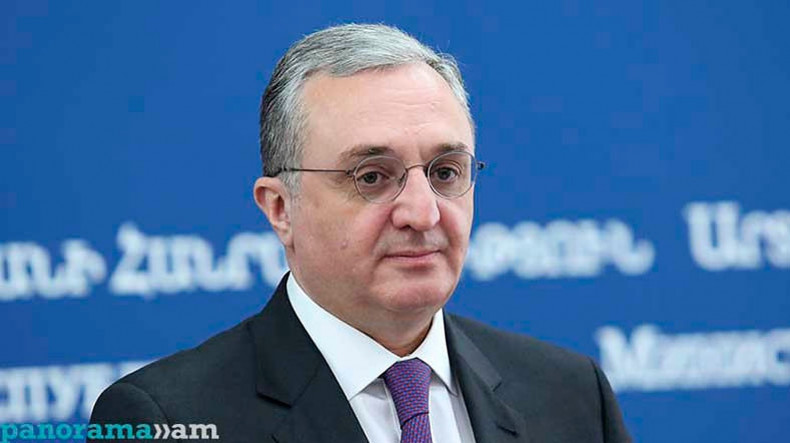
Opinion: We have no alternative but self-interest, self-reliance, self-confidence and consolidation
The article by Zohrab Mnatsakanyan, a career diplomat and Armenia’s former foreign minister, was originally published on EVN Report.
We are living a renewed phase in defying an existential threat and challenge to our physical security, to our sovereignty and to our freedom.
There is a solid, clear and manifest fact: Shortly after midnight on September 13, Azerbaijan attacked Armenia from multiple directions on its south-eastern and eastern border, targeting civilian infrastructure and settlements and deep into the territory of Armenia with the use of heavy artillery, mortars and UAVs. Azerbaijani ground troops entered the territory of Armenia with the aim of digging in and establishing controlling positions within the territory of Armenia. At the time of writing the military aggression against Armenia and occupation of its sovereign territory continues. The sheer nonsensical allegations about Armenian provocations is the necessary propaganda background to this aggression. One wouldn’t expect Azerbaijan to openly state that they have resorted to the use of force because they sensed favorable military and geopolitical conditions to exert pressure on Armenia for all their demands within the present context of negotiations.
For Armenia, the problem with Azerbaijani propaganda lies with the utilization of their narratives by those in the international community and international media, who choose to hide behind the shield of “neutrality” in order to safeguard their own interests, or the “balanced coverage” of news in order to sustain broader established narratives of geopolitical developments in and beyond the region. How do we address this?
There are consistently lingering illusions among us Armenians about international saviors of our nation, which has been the most damaging mindset we could adopt in most of our history, and especially since regaining sovereignty. In order to sweep them away it is imperative to finally accept and stick to certain fundamentals. First, the world is not fair, and quite often, it is not fair in our favor. Second, we should stop imposing a mindset of a national liberation movement to the nation state. It is detrimental for effective international engagements and pragmatic actions in the promotion of national interest. The nation state’s primary prerogative is the defense of national interests and sovereign territory. Delegating this function to a third party is exactly the manifestation of the mindset of a national liberation movement.
Pragmatic Unity
Winston Churchill once pointedly said, “You may have to fight when there is no hope of victory, because it is better to perish than live as slaves.” God bless our Army––we can win even when it seems impossible. However, God give us strength for our national conscience, pragmatism, wisdom and lucidity to finally adopt a sense of pragmatic unity (not to be confused with uniformity, God forbid). This is imperative in order to give weight and consolidated national public support to our defense capabilities. Most battles and wars are won with the strength of spirit. This we need in order to protect our sovereignty, our democracy, our freedoms, our identity, our heritage, and most importantly––our future.
International engagement is among the most important instruments in our sovereign toolkit in order to generate the necessary environment and conditions for sustainable national security and national development. Nation states cooperate with or confront each other primarily, if not solely in order to protect and promote national interests.
Foreign policy is shallow, unless it is backed by sufficient and sustainable national capacity to attract the interest of international partners. Global experience has been consistently pointing at the fact that national capacities are not necessarily extracted from under the ground. It is definitely not all about oil and gas, although as we often see in our region, it does often take center stage for the international community. However, the experience of many nations in the world, and in Europe in particular, has demonstrated manifest and compelling examples of strong national capacity based on functioning state institutions and a competitive modern and progressive economy, successfully integrated internationally. Thirty years is a considerably long time in modern history. Think of Finland from 1945 to 1975. In the case of Armenia, there is no doubt about the strength and the talent of our nation to rise from yet another existential threat at this moment in our long history. An effective functioning state and its institutions, fair and potent application of the rule of law in a democratic system, essential infrastructure development and quality education are the four pillars on which we can continue to successfully build our national security and national development and successfully generate converging interests with most of our international partners. In short, foreign policy begins at home. And foreign policy consolidates cooperation with international partners to this end.
With the entrenchment and sustainability of the mindset of sovereignty, the strategic priorities such as the ones recounted above (and no doubt, many will treat them as non-conclusive) should not be perceived or pursued as short-, medium- or long-term policies, but as a permanent condition of the state and the public.
Meanwhile, presently we are collectively addressing a certain set of fundamental and intense security challenges, the premise for which was determined by the devastating outcome of the 2020 Artsakh War. The present escalation is the latest, though not the only manifestation of the deep fragilities established after November 9, 2020. The scope and dynamics of Armenia’s ongoing strategic challenges are defined primarily by the content of the November 9, 2020, trilateral statement (and further elaborated in the statements of January 11 and November 26, 2021).
Collective Reflection
The causes and consequences of the 2020 Artsakh War have been and will remain in the foreseeable future the theme of fierce and often confrontational public and political debates in Armenia and Artsakh. One might suggest numerous misjudgments out of the sense of hubris generated over the past 30 years and since 1994 in particular, as one such cause and consequence out of many. The high emotional charge of the debates is perhaps inevitable, although more reserved collective reflection on the situation might have been more helpful and mature. While sweeping aside considerable trash and emotional outbursts, there are innumerable valid points both in criticism and for the way forward emerging from these debates, which manifestly underline the value of the right to freedom of expression, and all other rights and freedoms for that matter. One might choose to see plenty of mess in the public space, but this mess is much preferable to the “order” of authoritarianism. It is out of such debates, no matter how messy, heated and confrontational they are, that public consensus springs and defines public policies pursued by a government elected by a majority in fair and democratic elections. Given the inherent national characteristics of our people and society, this is the only way to sustain a resilient and healthy public life in our sovereign state. In the case of Armenia, democracy, therefore, is not just another political model, but a security requisite, a defining condition and organizing principle in pursuit of national interest.
In the context of the present immediate challenge of considerable escalation, and with the above observations in mind, it is apparent that Armenia’s foreign policy makers are confronting a significant challenge of the new narrative codified in the three trilateral statements of 2020 and 2021, mediated by Russia, as well as deriving from the parallel mediation track pursued by the European Union. This is an entirely new situation in the region which, to a large extent but not entirely, cancels out the narratives and operational parameters existing before the start of the 2020 Artsakh War.
The primary, if not the only purpose of the November 9 statement was, in plain language, to stop the war in Artsakh. It was anything but a document on the resolution of the conflict. The primary issues defining the core of the Nagorno Karabakh conflict, namely the status of Artsakh, based on the exercise of the right to self-determination, the comprehensive and sustainable security of the people of Artsakh guaranteed by Armenia (including by way of direct link with Armenia) and international arrangements, have not only been damaged, but exposed to grave risks. The existential threat to the people of Artsakh has only been aggravated. Those core issues, which frame the causes of the conflict, however, have in no way disappeared. They are exposed to considerable pressures and reshaping in light of the new circumstances. This reality is a fundamental premise for evaluating strategic long-term policy options.
The November 9 statement primarily establishes a ceasefire with the use of a very specific mechanism––the deployment of Russian peacekeeping troops. This is significant in itself as under the circumstances that peacekeeping mission remains the only deterrent of renewed assault against Artsakh. It also secures important space for re-engaging the parties in a diplomatic process of conflict resolution. Of course, peace process, negotiations and diplomacy are the preferred medium of conflict resolution. Better jaw-jaw than war-war. At the same time, there are some very significant new risks emerging from the content of the November 9 statement.
First, the peacekeepers do provide a degree of security for Artsakh. Under the circumstances, this is the only arrangement available to Artsakh. However, the vulnerability of this arrangement derives from the introduction of a time limitation to the peacekeeping operation, no matter what caveats are present in the text. No doubt, Azerbaijan should be expected to fiercely attempt to revert the price they paid for the outcome of the 2020 war. That price being the presence of a foreign military entity on its soil, bringing with it significant security vulnerabilities, including internally.
Furthermore, the fluid colors on the palette of international relations are likely to sustain a broader challenge to the Russian peacekeeping operation from some other power centers. One distinct method introduced by Azerbaijan in pursuit of their objective is the insistence on a peace agreement with the explicit unconditional recognition of its territorial integrity, in which “there is no such thing as Nagorno-Karabakh”. Up to now, there are apparent signs and hints from some parts of the international community to accept such a line of thinking for the sake of a broader regional peace. This is, obviously, unacceptable and most dangerous for the people of Artsakh and for Armenia. The consequences of acceptance of such a line are forceful expulsion, ethnic cleansing and annihilation of the people of Artsakh, obliteration of all traces of their presence on their historical land. There is bitter historical experience of such acts perpetrated by Azerbaijan in the past. Think of Nakhichevan, for example. This argument has been sustained by Armenia since the subjugation of Artsakh to Azerbaijan. The narrative became articulated and internationally acknowledged in 1988 as a result of the policies of openness in the dying years of the Soviet Union. It underlines the presence of existential threat to the Armenians of Artsakh. The critical function of the status issue as a derivative of the security issue, and supported by the notion of the right to self-determination, is defined exactly by the presence of a very tangible physical threat to Armenians if direct Azerbaijani jurisdiction is imposed over them. The flimsiness and slow motion of international mechanisms of deterrence cannot be fully relied upon once acts of ethnic cleansing are in motion.
Second, the November 9 statement fundamentally remodels the framing of the direct link between Armenia and Artsakh. That the control of the Lachin corridor is delegated to the Russian peacekeepers rather than exercised by the Armenian sides, introduces significant vulnerabilities for the sustainability of a secure direct link between Artsakh and Armenia and thereby punctures a critical security hole in the medium and long term.
Third, while addressing the important priority of deblocking the regional economic and transport links, the November 9 statement fails to keep a generic reference to all of these links. Instead, it makes an unnecessary stand-alone reference to one such link between Nakhichevan and Azerbaijan. This has subsequently become critically dangerous for Armenia. In the present diametrically opposing interpretations by the parties of the status of this particular link, Azerbaijan attempts to nail down a concept of a “corridor”, directly challenging sovereign control by Armenia of its territories to the South. This reference in effect becomes a medium of extending existential threats to the Armenian sovereign territory, as we actually witness in the present escalation.
It is difficult to assess fairly the narrative emanating from the mediating efforts of the European Union, as public knowledge about its content is scant. However, there are no significant signs of a drastic deviation from the narrative of the November 9 statement. Apparently, an identical agenda, revolving around communications, corridors and peace agreements defines the dynamics of the EU mediation, with its own variation on the theme. Notably, the European Union has been demonstrably explicit about its primary focus on secure energy cooperation, as evident in the statement of the President of its Commission of July 18. This is on record. Overall, the two mediating processes seem to define a similar and consistent dominant narrative, which underlines the challenges to our foreign policy makers.
Stakes in the Region
On top of the challenges emanating from Azerbaijan, there are also significant risks arising from the deepening confrontational environment in international relations more broadly, which involves regional and international players with distinct stakes in our region as well. The most prominent among them are Russia, Turkey, Iran, the European Union and the United States. There are established patterns, including, sadly, among policy makers, observers and commentators, of often simplistic perceptions about friends and foes to big brothers, which are further exacerbated by the ongoing war in Ukraine. When the elephants stomp on grass, small nations confront the threat of becoming a bargaining chip in big transactions. Our history has taught us bitter lessons in this. Once again, we are challenged by the reduced focus and sensitivity to our existential threats and vital interests against the background of heightened tensions among the heavyweights.
This state of affairs and the heightened risks, as recounted above in broad brushes, should in no way persuade us to resign to hopelessness. This is an attempt for a realistic and fair (again, of course non-conclusive) assessment of the present conditions in which we find ourselves. Only with such an approach in mind can our foreign policy makers define a pragmatic way forward to address present challenges.
Of course it is impossible and would be ill-considered to underestimate or set aside the broader context of challenges and entrenched interests of international and regional players, while assessing options for our course of action. However, it would be as good as placing the cart before the horse if we underrate and subject our vital national interests to those broader ones while assessing policy options. At present there seems to be a palpable degree of obscurity and confusion about what we want. Perhaps it is somewhat challenging to formulate lucid answers under the stress of dominant established narratives that are limiting. One does not need elaborate commentary to observe and understand that the existing frameworks and parameters, within which we address threats, are least favorable. Therefore, perhaps the one immediate function to focus on is expanding the narratives and parameters, especially the ones which should receive some form of codification.
Our concerns about existential threats and our national interests are valid and legitimate. The latest escalation––the aggression and occupation of Armenia’s sovereign territory—explicitly attest to this. It is absolutely impossible to resign to the acceptance of this current and clearly fragile ceasefire, which continues to hold at the time of this writing. The ceasefire is delusory, as the fact of occupation persists and the risks of resumption of hostilities are considerable. Furthermore, the primary danger in calming the situation without the withdrawal of Azerbaijani forces from Armenian territory is allowing Azerbaijan to successfully apply “salami tactics”. This scheme implies slicing out and taking control of territories at this phase of escalation, which presently already constitutes over 50 sq/km of sovereign Armenian territory, and then waiting for the next favorable window to expand infiltration into our territory. The situation remains fluid and dangerous.
Nonetheless, this latest escalation and massive aggression, as much as it is a serious threat, is also a renewed call for action. For reasons of practical action it contains seeds of opportunities for challenging established narratives with our legitimate concerns and interests.
In a non-conclusive list of actions strictly for foreign policy makers one might suggest expanding actual international presence on the ground and increasing the scope of eyes and ears of the international community. Russian peacekeepers have a mandate on the ground in Artsakh. The aggression against Armenia resulted in the actual presence of the Azerbaijani military on Armenian soil. Massive damage has been inflicted on civilian infrastructure and settlements. There are heavy casualties, including among civilians. There are scores of wounded, also including civilians. Thousands became internally displaced. Despicable atrocities have been committed against Armenian servicemembers. At the time of this writing the Armenian authorities have published updated lists of losses and damages. That resident Ambassadors visited last week the areas of conflict is useful, though it is too little. There needs to be a more institutional approach to elevating international awareness by way of involving professional missions from relevant organizations, including the United Nations and the OSCE. They have important functions of recording all kinds of violations and facts of aggression and reporting back to members of those organizations. Among other things, they could expand and change the narrative. They are a medium of elaborating a narrative reflecting our legitimate concerns and threats. Their reports are an important foundation for renewed codification of the narrative by way of pursuing respective resolutions in relevant bodies. That some members of the United Nations Security Council were complaining about the lack of information––a feeble excuse—at its meeting last week, is a compelling argument for insisting on the immediate dispatch of relevant missions to the region.
Another important focus is on public diplomacy. The visit of Nancy Pelosi, Speaker of the House, and her delegation to Armenia is a compelling example of challenging established narratives in the public space, especially in international media, which is driven by simplistic clichés about who is friends with whom. Concerted action to further involve high profile visibility to Armenia’s legitimate concerns and threats is also among priority functions.
Deterrence is the most difficult challenge. This challenge primarily concerns renewed Azerbaijanii aggression against Artsakh, or aggressive action from Turkey, including through the territory of Nakhichevan. These challenges are also partly addressed by way of expanding and sustaining mobilized international political attention in order to trigger prompt reactions.
With these and other actions in the foreign policy field one would aim at firm insertion of our legitimate interests in the evolving process to pursue sustainable peace in the region. Lopsided peace is unsustainable and fragile. It will not work if it is pursued at our expense. Azerbaijani and Turkish rhetoric about peace is anything but convincing at this moment. Pursuing peace is a noble and vital objective, but only when it is genuine. The region needs genuine peace. Like any parent, about 30 years ago I hoped my sons would not experience the harrowing reality of war. They did. The future must be different.
Pursuit of peace requires reliance on and mobilization of national resources and national capacities. This is why we have no alternative to self-interest, self-reliance, self-confidence and consolidation.
Newsfeed
Videos







